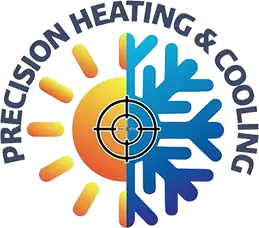Among the various heating solutions available for homeowners, heat pumps have gained popularity in recent years due to their energy efficiency and versatility. Heat pump installation can significantly reduce your energy consumption and provide year-round comfort, as they function as both a heating and cooling system. However, when considering the prospect of installing a heat pump in your home, there are several factors you need to take into account to ensure it’s the right choice and that it suits your unique requirements.
A heat pump is an all-in-one heating and cooling system that uses refrigerant to transfer heat between the outdoors and your home, depending on the season. In winter, the heat pump extracts heat from the outside and brings it indoors to warm your home. Conversely, in summer, the heat pump removes heat from inside your home and transfers it outside, helping to maintain a comfortable indoor temperature. The primary advantage of heat pumps is their energy efficiency – by transferring heat rather than generating it through combustion, heat pumps can provide the same level of comfort as traditional heating and cooling systems while consuming significantly less energy.
Read on as we at Precision Heating & Cooling explore the advantages of heat pump installation, outline some critical factors to consider when making this decision, and introduce you to our professional services that can guide you through the process.
Understanding the Types of Heat Pumps
There are several types of heat pumps to consider when exploring installation options, each with its benefits and limitations. Understanding these differences will help you make an informed decision based on your specific needs and preferences.
- Air-Source Heat Pumps – The most common type of heat pump, air-source heat pumps transfer heat between your home and the outdoor air. These are suitable for most climates but may be less efficient in extremely cold areas.
- Ground-Source (Geothermal) Heat Pumps – These heat pumps use the stable temperature of the ground or underground water to transfer heat to and from your home. They have higher installation costs but offer greater efficiency and can function effectively even in extreme climates.
- Ductless Mini-Split Heat Pumps – Ideal for homes without ductwork or separate spaces requiring individual temperature control, mini-split heat pumps consist of indoor units connected to an outdoor unit. They provide highly efficient zoned heating and cooling but may have higher installation costs.
Our skilled technicians can assist you in determining the best type of heat pump to suit your home’s unique needs and provide expert installation services to ensure optimal performance.
Evaluating Your Home’s Climate and Insulation
The effectiveness and efficiency of heat pumps can be significantly influenced by your home’s location and insulation. Heat pumps are best suited for moderate climates where the temperature rarely drops below freezing. However, recent advancements in heat pump technology have made them feasible even for colder climates, with some models designed explicitly for low-temperature operation.
Proper insulation and sealing of your home are essential factors to consider when installing a heat pump. A well-insulated home can better retain heat, allowing the heat pump to operate more efficiently. Our technicians can assess your home’s insulation and recommend improvements if necessary to maximize the benefits of your heat pump installation.
Determining Heat Pump Sizing and Costs
Choosing the right size of heat pump for your home is critical for ensuring comfort and energy efficiency. A heat pump that is too small may struggle to maintain a comfortable temperature, causing it to run constantly and consume more energy. Conversely, a heat pump that is too large may cycle on and off frequently, leading to uneven temperatures, wear and tear, and reduced efficiency.
Our professionals can perform a load calculation to determine the appropriate size of heat pump for your home, taking into account factors such as square footage, the number of rooms, and insulation levels. This ensures that your heat pump installation is tailored to your specific needs and provides optimal comfort and efficiency.
Understanding the costs associated with heat pump installation is equally important. While the initial investment for a heat pump may be higher than traditional heating and cooling systems, the energy savings and reduced maintenance requirements can offset the cost over time. Our team can provide you with a detailed cost analysis, showing the potential savings and return on investment from a heat pump installation.
Post-Installation Maintenance and Support
Once your heat pump is installed, routine maintenance is crucial for keeping it running efficiently and prolonging its lifespan. Our technicians can provide ongoing support, performing regular checkups, cleaning, and necessary repairs. This ensures that your heat pump continues to perform optimally and delivers reliable, energy-efficient comfort to your home.
Conclusion
Heat pump installations can be a wise investment for homeowners seeking a versatile, energy-efficient, and eco-friendly heating and cooling solution. By considering the type of heat pump, your home’s climate and insulation, proper sizing, and associated costs, you can make an informed decision that best suits your needs.
At Precision Heating and Cooling, our team of experienced technicians is here to guide you through the process of heat pump installation in San Jose, from selecting the ideal system to providing expert maintenance and support. Don’t hesitate – reach out to us today to discover the benefits and savings that a heat pump can bring to your home.





